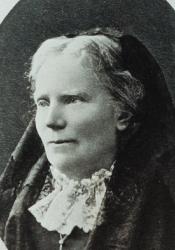The Medical Act of 1876
The Medical Act of 1876
The 1870s was one of the most important decades for British women in the field of medicine. Perhaps the most prominent act was the Medical Act of 1876. The act allowed all British medical authorities to license all qualified applicants, regardless of gender. Prior to the Medical Act of 1876, women practiced as unlicensed physicians, a phenomenon that was not uncommon for both men and women at the time (Kirwan). The Medical Act of 1858, however, set laws to regulate unlicensed physicians in the United Kingdom. Although this act might sound justified, it was unfair to women who wanted to practice, but could not, due to medical schools refusing to accept women to their establishments.
The act did not stop one particularly brilliant woman, Dr. Elizabeth Blackwell, who had found a loophole in the Medical Acts. She realized that British laws did not prevent foreign practicing doctors from practicing in the United Kingdom. Dr. Blackwell had already graduated from New York’s Geneva Medical college in 1849, becoming the first woman to earn an M.D. degree in the United States. She used her medical degree to register in the General Medical Council of Britain (Jefferson et al.). She was allowed to practice in 1865, when she was granted entry to the Society of Apothecaries (Wagner). The Society of Apothecaries prevented future female entrants later that year.
A group of women who got expelled from Edinburgh University decided to work their way around the established medical schools that did not accept women into their programs by founding the London School of Medicine for Women in 1874. Among those women was Dr. Elizabeth Blackwell. The London School of Medicine for Women began in a small house but moved to purpose-built premises at the end of the 19th century. The students were taught by male doctors who supported their cause. The school was noted for its international links to other medical establishments.
Despite the foundation of the London School of Medicine for Women, many ambitious women in Britain were not pleased with the prominent medical schools that still held the belief that women were not fit to practice medicine. The Edinburgh Seven, who were the same seven women that established the London School of Medicine for Women, led the campaign to fight the persistent inequality in medical schools. Those women were expelled from their medical program due to increasing hostility from male professors despite their gaining honors in multiple subjects. Their campaign gained them many renowned supporters, such as Charles Darwin. Despite the campaign’s publicity, the Court of Session supported the University’s right to reject giving degrees to women and ruled that the seven women should not have been allowed to join the medical program in the first place. The failed campaign, however, gained enough support to eventually result in the Medical Act of 1876.
The Medical Act of 1876 was proposed by Parliament member Russell Gurney. Theoretically, the act should have allowed women access to medical schools. The act, however, did not enforce the acceptance of women in medical schools. It only allowed medical schools to choose whether or not they wanted to accept women into their medical programs. Most medical schools at the time continued to reject all female applicants to their schools. The Royal College of Physicians did not admit women into their programs until 1907 (British Medical Journal). Furthermore, the act did not enforce any laws for equal treatment of women if they were to be accepted into medical programs. The struggle for women who sought a medical career continued well into the 20th century.
Works Cited
Jefferson, Laura, et al. “Women in Medicine: Historical Perspectives and Recent Trends.” OUP Academic, Oxford University Press, 8 Mar. 2015, academic.oup.com/bmb/article/114/1/5/246075.
Wagner, John A. “Voices of Victorian England: Contemporary Accounts of Daily Life.” Google Books, ABC-CLIO, 25 Feb. 2014, books.google.com/books?id=VqiSAwAAQBAJ.
“Former London School of Medicine for Women.” Historic England, historicengland.org.uk/research/inclusive-heritage/womens-history/women-and-healthcare/former-london-school-of-medicine-for-women/.
“British Medical Journal.” Google Play, Google, 1908, play.google.com/books/reader?id=1Rw-AQAAMAAJ.

